How Xi Jinping spent a decade cementing his grip on China to become the most powerful leader since Mao
October 2007: After spending 25 years in various government posts across China, Xi is named to the country's highest decision-making body, the Politburo Standing Committee.

March 2008: Xi moves up in ranks to become vice president to Hu Jintao.
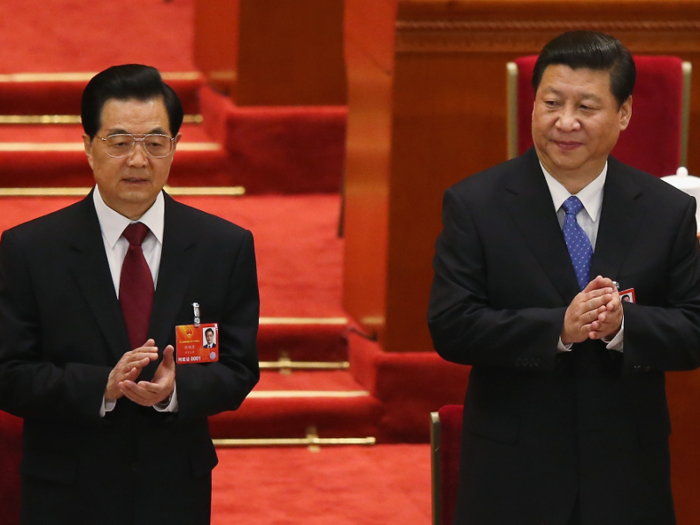
The new title, and an unofficial rule that would see most of the Standing Committee soon retire, meant Xi was now expected to succeed then-president Hu.
According to a government profile on Xi following his appointment, the leader had "affections for the common folk" and was well-known for "amicability."
Retired senior officials in Zhejiang, where Xi lived from 2002 to 2007, said he is a "man of action without making shows, an open-minded man with a down-to-earth style of work."
March 2013: Xi becomes president.
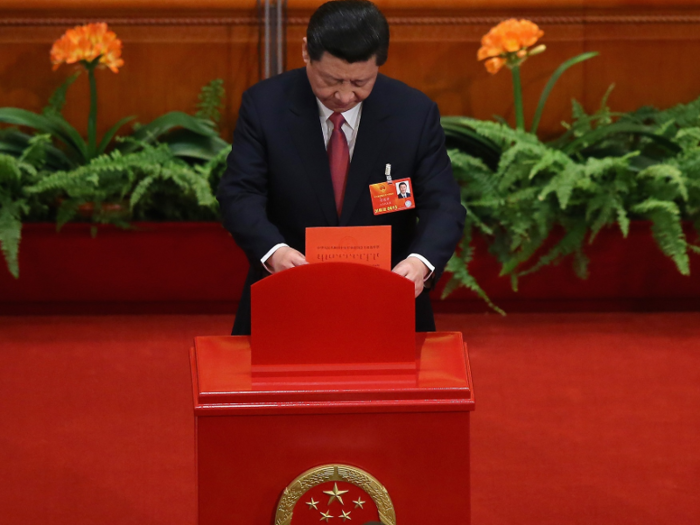
Xi's accession to president was essentially unchallenged.
Nearly 3,000 carefully vetted communist party members met for the National People's Congress, and voted for Xi in a rubber stamp ceremony. There was just one "no" vote and three abstentions.
Experts speculate that members of Standing Committee bargain in secret to delegate a president several months before the congress "vote."
That same year Xi introduced his major global infrastructure initiative, Belt and Road, and created the National Security Commission, which he also chairs.
Source: Reuters
December 2014: Xi's unprecedented corruption crackdown leads to the arrest of Zhou Yongkang, formerly one of the most powerful men in China.
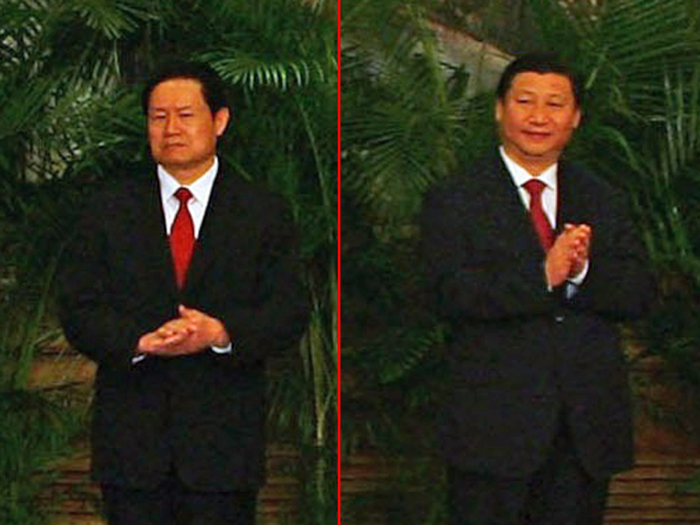
Zhou Yongkang, former member of the Politburo Standing Committee was the first and highest ranked official to be arrested and expelled from the Communist Party for bribery and corruption.
Many locals doubted the party would arrest someone of ranked so highly within the party, but the move actually showed an increasingly confident Xi making an example of Zhou to further consolidate his power.
Xi's crackdown on corruption, his crowning domestic policy, has reportedly seen over 1 million officials, including numerous political rivals, targeted since 2013.
Source: BBC News
April 2016: State media refers to Xi as "Commander-in-Chief" of China's Joint Operations Command.
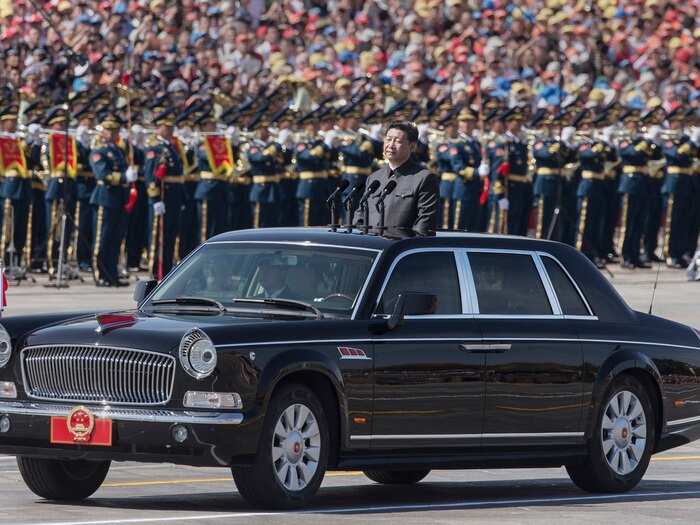
Xi now holds the most senior titles, simultaneously, of any leader in China's modern history.
Aside from being Commander in Chief, he is the General Secretary of the Communist Party, and chair of the Central Military Commission. He also heads leading groups on foreign affairs, Taiwan affairs, deep reform, internet security, and financial affairs.
When Xi was designated Commander-in-Chief, experts said the move would be interpreted as propaganda — stressing his control over the country and its military power.
Experts also said the state media's use of the new title implied a level of approval of Xi's continued power grab.
Source: BBC
October 2016: Xi is named the Communist Party's "core leader," a title given only to a handful of leaders.
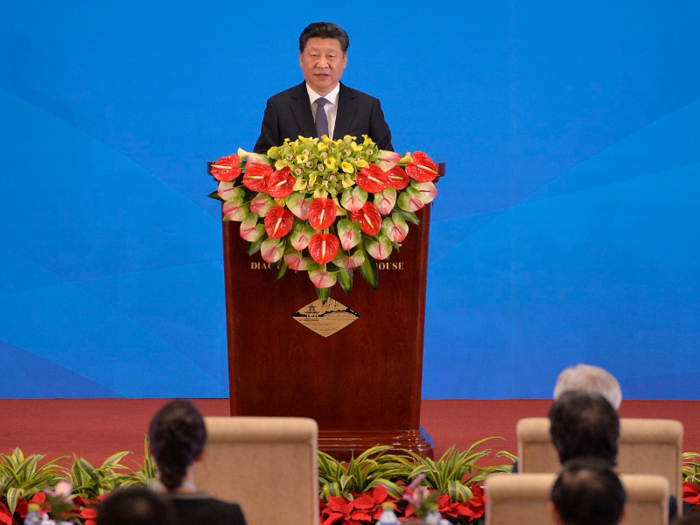
The title "core leader" recognized Xi as the most powerful figure in the Communist Party, and reflected the party's willingness to bow to his dominance.
Only three others have been given the prestigious designation: Chairman Mao Zedong, who established communist China; Deng Xiaoping, former leader who instituted term limits; and Jiang Zemin, who was president from 1993 to 2003, and whose thoughts were written into the constitution — though his name was not included.
Liu Qibao, then-Politburo member and head of propaganda, said presenting Xi with an upgraded title was "where the fundamental interests of the Party and state lie."
Source: Xinhua
October 2017: Xi's name and policy are enshrined into the country's constitution.
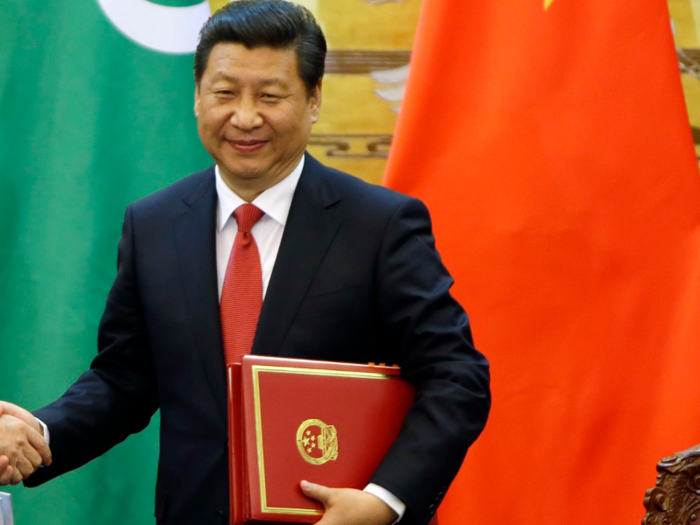
"Xi Jinping Thought on Socialism with Chinese Characteristics for a New Era” was entered into China's constitution, making Xi the first leader to be alive when named in the constitution after Mao.
The landmark addition stated that Xi's thought must be upheld on a long-term basis and continually developed and, according to state-run media, was met with 70 rounds of applause.
Source: Xinhua
October 2017: Xi did not indicate a successor, as is customary, pointing to his plans to remain in power.
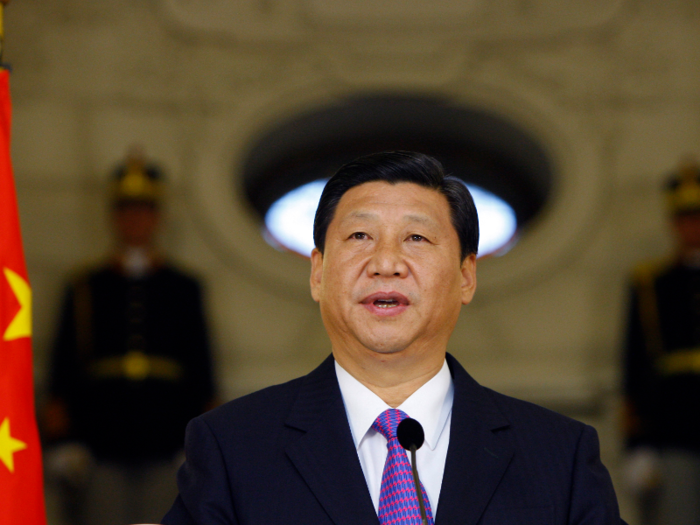
When Xi unveiled the new Politburo Standing Committee, one thing was clear: none of the country's most powerful men looked like they could be his successor.
All the committee members were aged between 60 and 67. With an unofficial retirement age of 68, that made every potential candidate too old to take Xi's place and rule for the customary 10 years at the end of Xi's second term in 2022.
Source: The Guardian
October 2017: China gave Xi the title of lingxiu, a title only carried by Mao Zedong and his successor
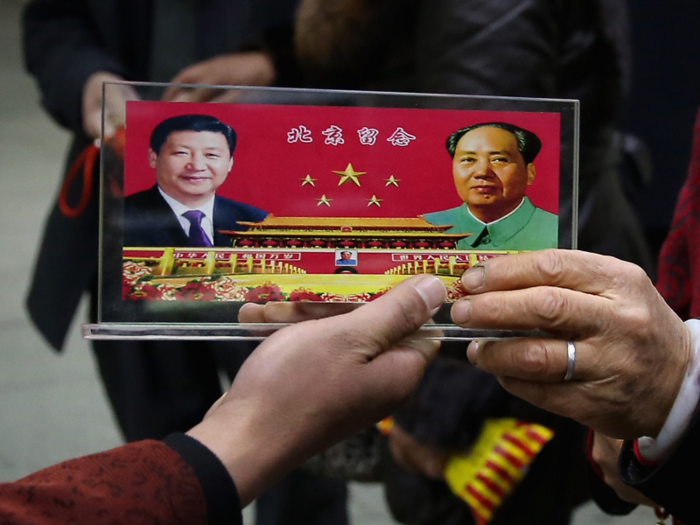
Xi was formally recognized as the ruling Communist Party’s lingxiu, a spiritual term for leader which evokes deep admiration.
The term was only used for Mao and his short-lived successor Hua Guofeng, and signals Xi's authority is well above that of his predecessors.
Source: South China Morning Post
February 2018: China moves to eliminate term limits, signaling Xi's ultimate power.
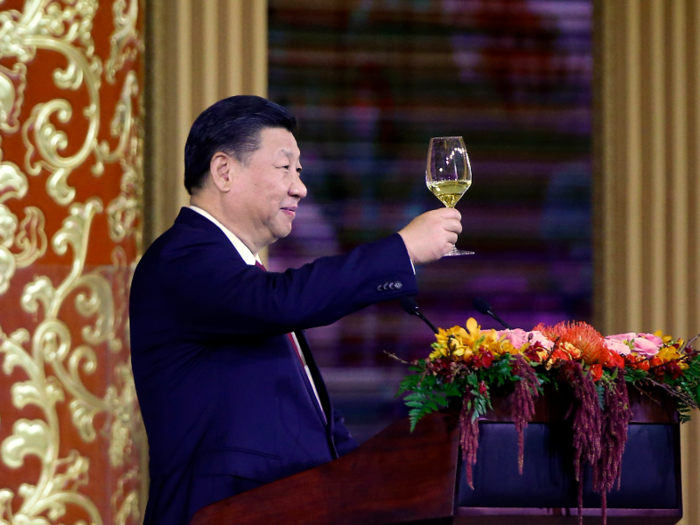
China proposed ending presidential term limits, signaling Xi's plan to stay in power well after his second term. The decision will be confirmed at the end of the National People’s Congress session in March.
Experts say the decision could open the door for the president to stay in power for as long as he so chooses, shifting the country towards authoritarianism.
"What is happening is potentially very dangerous because the reason why Mao Zedong made one mistake after another was because China at the time was a one-man show," Willy Lam, a political analyst at the Chinese University in Hong Kong, told the Associated Press.
"For Xi Jinping, whatever he says is the law. There are no longer any checks and balances."
Source: South China Morning Post.
Popular Right Now
Popular Keywords
Advertisement